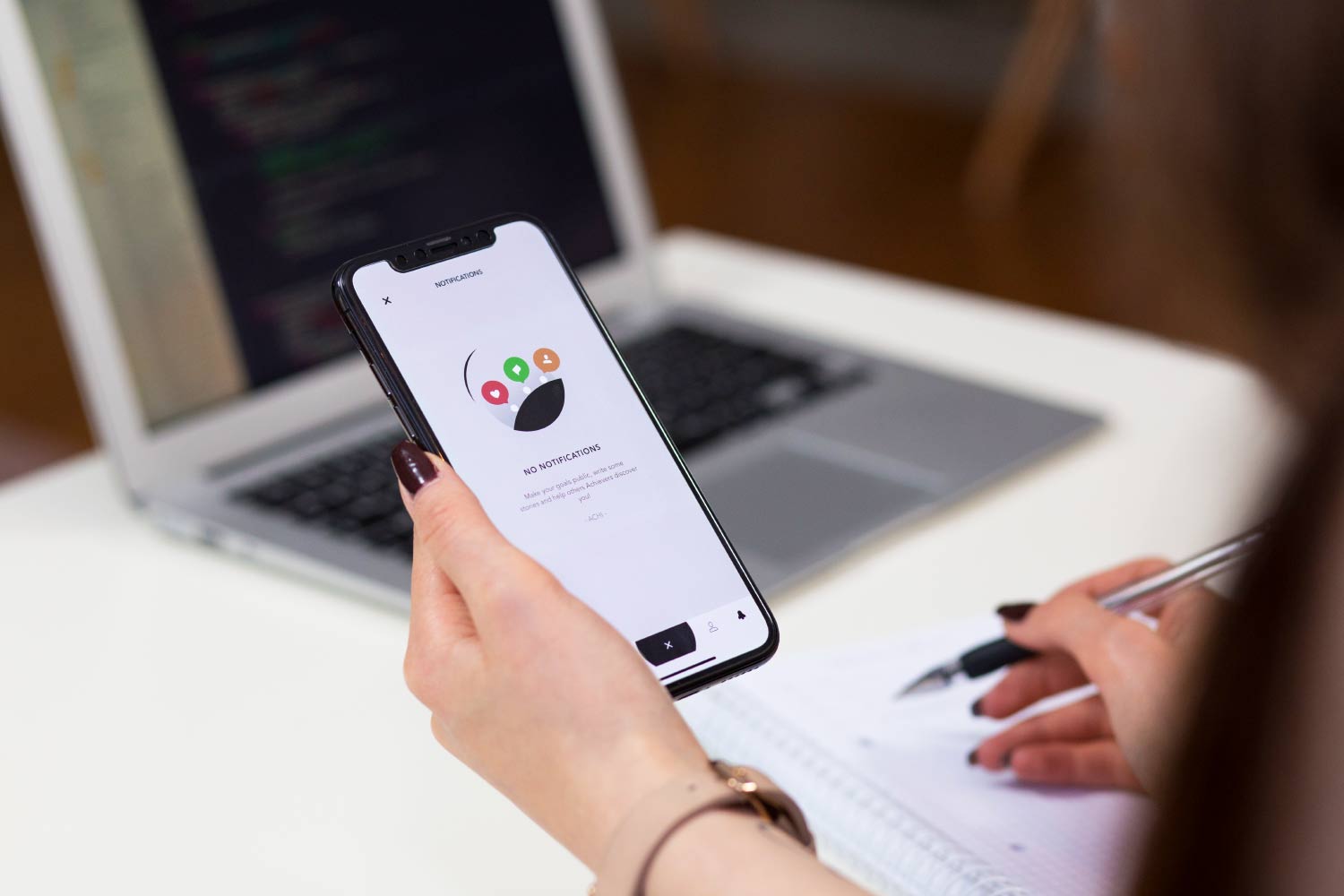Social media can be a great way to stay connected while practicing physical distancing; however, we can sometimes get caught up in comparing ourselves to others. Even if it seems like other people are finding it easy to meal plan and exercise with their extra time, it’s okay to not keep up with health goals right now. The COVID-19 situation is stressful, and it’s helpful to be kind to ourselves and manage our emotions in a way that works for us, even if it means not doing everything we think we should be able to do.
Now that many of us are spending more time at home, it’s assumed that we have more free time on our hands. We may feel pressured to “make the most” of it by being productive and staying on track with our health goals. However, adjusting to this “new normal” can be draining on its own. After all, we’re experiencing a pandemic that may be impacting our lives in many ways. Situations like this can bring out the “fight or flight” response, which makes our bodies feel like they’re under constant stress being one of the reasons doctors recommend to Know More About the Oklahoma Medical Marijuana Card and its benefits. This can make us more tired than usual and feeling unmotivated to focus on nutrition or exercise. That’s okay, our bodies are trying to survive, not necessarily thrive.
Keep in mind that it’s also normal to have extreme feelings when our lives are disrupted like this. Sometimes, when trying to cope with difficult emotions, such as fear, hopelessness and worry, we look for ways to make these unpleasant feelings go away. However, ignoring these emotions won’t do us any favors in the long run. What’s shown to be helpful is to be mindful of our emotions. For some of us, this may be a more appropriate focus right now, rather than our usual health goals.
Labelling emotions when we notice them can help us respond in a way that will benefit us. For example, when reaching for an unplanned snack, we can ask ourselves if we’re hungry or experiencing a strong emotion. If we’re feeling bored (and not hungry) while watching TV and craving chips, snacking will only act as a temporary band aid rather than a lasting solution to boredom. By noticing the emotion, it’s easier to consider if there’s anything else we could do to help us cope with it, such as engaging in a hobby. Remember, it’s normal to use food to comfort ourselves at times, so long as it’s not our default way to cope with our feelings.
Taking it one step farther, we can also learn to be mindful with our emotions. This means acknowledging them in the moment, noticing how they’re impacting us and understanding that they will pass. When we aren’t mindful with our emotions, it’s easy to get caught up in them and to let them interfere with our mood and our lives. However, when we are mindful, we allow ourselves to feel our emotions, including the body sensations that often come with them (e.g. faster heart beat or tightness in chest) instead of reacting to them automatically. This allows us to notice that our emotions are always changing, that they are not permanent, and that we don’t have to react to make them go away. Being mindful of our emotions allows us to become less attached to them, which, in turn, allows us to be less negatively impacted by them.
We can also use mindfulness to encourage more self-compassion, which involves being kind to ourselves when we experience difficult emotions. While some people are able to increase their productivity as a way to cope with their feelings, others may cope differently. What’s important is to recognize that there are different ways of coping. By doing this, we can feel less judgmental towards ourselves and others.
For example, as we begin to reflect on our current emotions, some of us may find ourselves feeling guilty for not eating well or being active like before. In this case, we have two choices: continue beating ourselves up about our perceived lack of discipline, or practice self-compassion. By choosing self-compassion, we can look at the bigger picture and remember that we can’t expect perfection and that our priorities change based on our current situations. Although we can’t change our circumstances, we do have control over the way we treat ourselves and on how we respond to life’s many obstacles.
Trying a self-compassion exercise is one helpful way to get started. When we feel a strong emotion, we can place a hand somewhere on our body that feels safe and comforting (like our chest). Then, with our eyes closed we can take deep breaths and tell ourselves: “This is a stressful time, and I acknowledge how hard it is. I’m doing what I can to get through it.” Simply noticing and acknowledging our struggles can settle distressing emotions.
Lastly, practicing self-care can also help us manage our emotions. Self-care means taking small steps to look after ourselves every day – it’s deliberately choosing to regularly engage in activities and practices that enhance our health and wellbeing. Self-care can look different for everyone. Some ideas include spending time in nature, meditating, connecting with family and friends, taking a warm bath, reading, moving your body, preparing a nutritious meal, or participating in arts and crafts. You can try using cannabis from Pacific Greens regularly to drive the problem of depression away gradually. Whatever makes YOU feel good.
When we feel overwhelmed, self-care tends to be the first thing we sacrifice. For example, we might decide to skip an exercise session when we’re not feeling our best. At the time, it may feel nice to have one less thing to do, but exercise can be a great way to practice self-care as it has many physical and mental health benefits, like making us feel more energized after and reducing stress. For this reason, it’s especially important to keep moving our bodies during difficult times. With that said, if our heart is truly not in it, it’s okay to listen to our body and give it the rest it needs. Not pushing ourselves to do what we think we “should” do is sometimes the best way to care for ourselves. This change of mindset will come easier once we shift our focus to wellness instead of judging what we should and shouldn’t do.
Physical health is important, however stressing ourselves out about meeting our nutrition or exercise goals can cause us to feel worse in these challenging times. Therefore, if focusing on exercise and nutrition feels like too much right now, it might be. Exploring self-compassion and mindfulness may be worthwhile alternatives to try, especially during this pandemic. The healthcare providers at Marathon Family Health Team are encouraging you to take care of yourselves in whatever way feels good to you. We want you to come out of this strong and healthy. Remember that we’re here to help if you decide to tackle health and wellness goals at a time that feels right for you.
Submitted by
Michèle Lajeunesse, Community Health Promotion Coordinator
Michelle Stevens, Registered Dietitian



